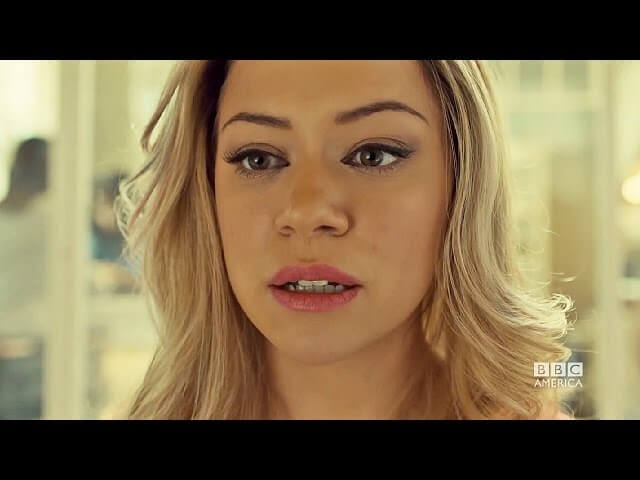Orphan Black co-creator Graeme Manson on the season finale, a new threat, and ’shippers

(This interview reveals major plot points from Orphan Black, specifically relating to the season-three finale episode “History Yet To Be Written.”)
With three seasons now under its belt, Graeme Manson and John Fawcett’s Orphan Black has emerged as one of television’s most confidently complex sci-fi dramas. While the mind-boggling elasticity of actress Tatiana Maslany anchors the action with nuanced portrayals of at least three different clones per episode, each new chapter brings new conspiracies, new paranoia, and new twists that threaten to shake the show’s foundation. The third season received some criticism for being more scattered, with its explorations of a competing male clone line and snowballing mythology. The season finale, however, centers on decreasing the threats—and the cast. The A.V. Club called co-creator and “History Yet To Be Written” writer Manson before he headed back into the season four writers’ room to discuss the revelations of the finale, whether or not the dead stay dead, and the wrath of scorned ’shippers.
The A.V. Club: A lot happens in this finale. There are so many questions, but the first one has to be: Is Delphine really dead? It looks like yes, but there’s no body, and yours is a twisty show…
Graeme Manson: Um… yes. Yes, but. Orphan Black is a cliffhanger. For all intents and purposes, Evelyne [Brochu’s character] is dead. But there’s always a crack of hope in an actor’s busy schedule. They can reappear somehow. But we had to make a bold story choice, and it was a story choice that was very collaborative with Evelyne. It’s a role that we wrote for her. It’s hard to make those big story choices with co-workers that have become your friends, but you got to do it. You got to do it for the good of the show. It’s about the whole story; it’s not about anything else. I mean, we really went for the strongest choice. And Evelyne was up for dying! [Laughs.] Actors really respond to the strong choices. We had made this decision early on that this was the arc of this season, and that we would go for it with the character as an individual. Go out with a bang.
AVC: Speaking of significant deaths: There was Paul’s sacrifice earlier this season, and by the end of this season, every male clone but Mark is dead. You spent a large chunk of this season shading in the male clones’ background with Castor… so how finished do we think Castor is at this point? Does this mean Ari Millen won’t be back in as significant way next season?
GM: Well, it’s every male clone but Mark that we know of. It’s a big-picture story, and so obviously we left the door open for Mark to come back. I think we can all look forward to Ari Millen next year.
AVC: It was always fun to see the male and female clones together. In this finale, Rudy and Helena finally have a fight.
GM: Yeah, that’s a powerful scene. That’s one of my favorites.
AVC: It’s powerful, and also a little frustrating! You want it to be as explosive as you know both those characters can be, but you pulled the rug out because Rudy glitches, and he can’t do it.

 Keep scrolling for more great stories from A.V. Club.
Keep scrolling for more great stories from A.V. Club.